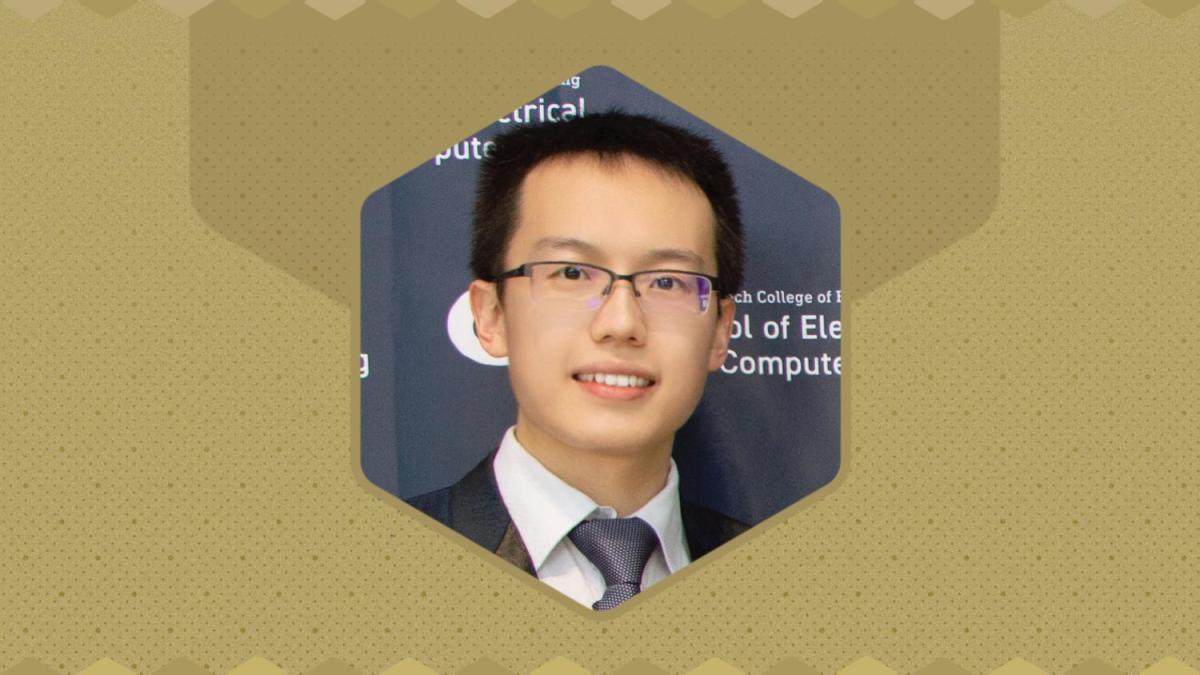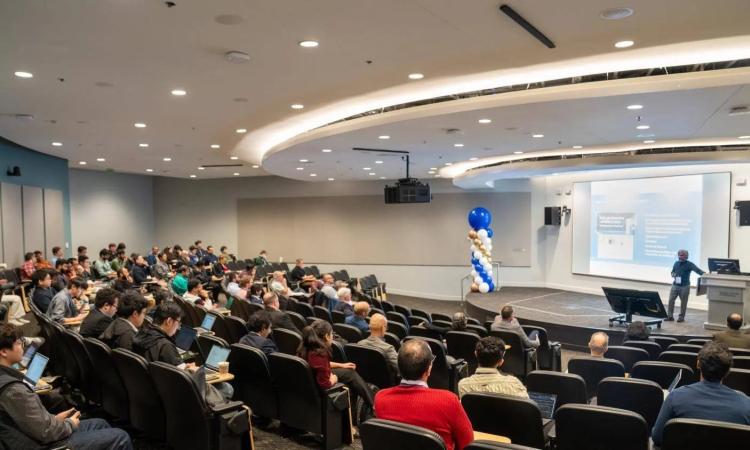The Ph.D. candidate was recognized for research that aims to advance performance, efficiency, and trustworthiness of physical intelligence.
(text and background only visible when logged in)

Georgia Tech School of Electrical and Computer Engineering (ECE) Ph.D. candidate Zishen Wan won first place at the Ph.D. Forum at the 62nd annual Systems to Chips Conference (DAC) in San Francisco, Calif.
Wan was recognized for his research, “Tailored Computing: Domain-Specific Systems and Hardware for Embodied Autonomous Intelligence,” where he conducted cross-layer software-system-hardware co-optimizations for neuro-symbolic artificial intelligence (AI), embodied agents, and autonomous machines, with the goal to advance performance, efficiency, and trustworthiness of physical intelligence.
The Ph.D. Forum at DAC is a poster session for students to present and discuss their dissertation research hosted by the Association for Computing Machinery (ACM) Special Interest Group on Design Automation (SIGDA) and the IEEE Council on Electronic Design Automation (CEDA).
DAC is recognized as the premier event for the design and design automation of electronic chips to systems, with the Ph.D. Forum viewed as a top venue for Ph.D. students in the field to receive feedback on their research and showcase academic work to industry. Participation in the forum is competitive with an acceptance rate of around 30 percent.
Wan is advised by ECE Professors Arijit Raychowdhury and Tushar Krishna. His research interests are computer architecture and very large-scale integration, where he focuses on co-designing systems, architectures, and solid-state hardware for autonomous machines and neuro-symbolic AI.
His work has been recognized with Best Paper Awards at DAC, Computer Architecture Letters, and Semiconductor Research Corporation JUMP 2.0 Annual Review. He's also received first place in an ACM Student Research Competition, as well as an IEEE Micro Top Picks honorable mention. Wan was selected as a 2023 ML and Systems Rising Star and a 2024 Cyber-Physical Systems Rising Star. Learn more at zishenwan.github.io/.
Related Content
CoCoSys Develops Groundbreaking Neuro-Symbolic AI Chip
At its third annual review, the JUMP 2.0 center celebrated its halfway point by unveiling a new neuro-symbolic AI chip, emphasizing a commitment to leading AI innovation and training the next generation of semiconductor engineers.
ECE Benchmarking Making Major Advances in Machine Learning
As machine learning become more integrated into everyday life, the benchmarking of the ever-evolving technology done by ECE researchers is improving algorithms and unlocking new possibilities.

